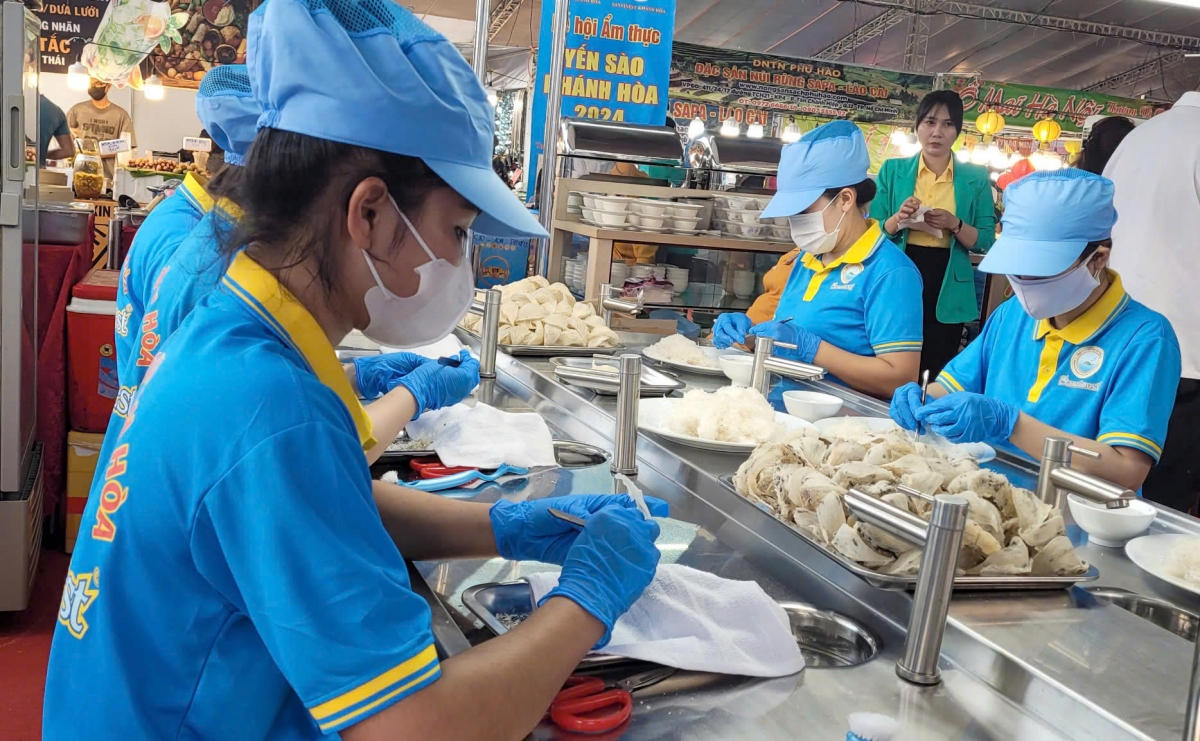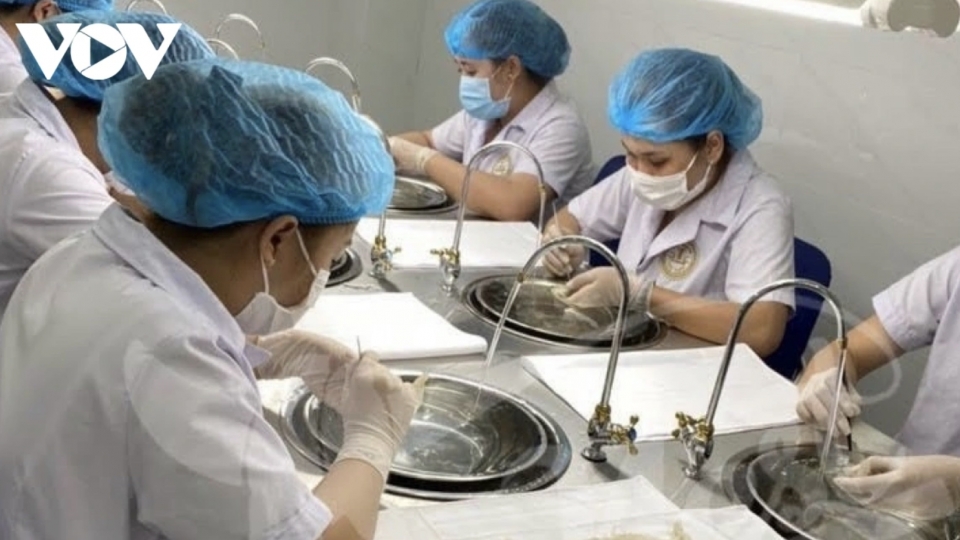Bird’s nest producers vie for larger market share in China
VOV.VN - Vietnam and China have recently signed a new protocol on quarantine and hygiene for exporting raw and processed bird’s nests from Vietnam to China, opening major opportunities despite rising competition.

Compared to the 2022 protocol, the newly signed document dated April 15, 2025 now includes both raw and processed bird’s nests and adds two key virus control requirements - avian influenza and Newcastle disease.
Accordingly, bird’s nests exported to China must be heat-treated to reach a core temperature of at least 70°C for a minimum of 3.6 seconds, ensuring effective virus inactivation.
“China has removed the requirement for a certificate of origin, it now only requiré an animal quarantine certificate,” said Hong Dinh Khoa, vice president of the Vietnam Edible Bird’s Nest Association. “This simplifies procedures and reduces time and costs for businesses, but it also means Vietnam bears greater responsibility for traceability and disease control from the source.”
Nguyen The Hoa, deputy director of Hai Yen Nha Trang Trading Ltd. Co., said that the signing of the protocol for raw bird’s nest exports brings both opportunities and challenges for Vietnam’s bird’s nest industry. Chinese companies can import raw nests and process them into clean nests, directly competing with Vietnam’s clean bird’s nest products in the market.
However, currently only Malaysia is allowed to export raw bird’s nests to China, while Indonesia and Thailand face export restrictions or limits. Therefore, opening the raw bird’s nest export market will provide an advantage for Vietnamese businesses.
“Currently, clean bird’s nest products exported to China have low competitiveness compared to Indonesia and Malaysia. Exporting raw nests will be an advantage to help boost the export growth of the bird’s nest industry,” Hoa told Cong Thuong newswire.
It’s noteworthy that businesses remain uncertain because currently only a few Chinese companies are interested in purchasing raw bird’s nests, as they are more accustomed to processing clean nests. Therefore, Vietnamese companies are considering whether to focus on exporting raw nests or clean nests.
Vietnam’s bird’s nest industry is also facing fierce competition from Malaysia, Thailand, Indonesia, and most recently, Cambodia. Yet, the Chinese market, with its high demand, still presents a major opportunity if local businesses can organise production methodically, standardise processes, and ensure traceability.
To seize this opportunity, Vietnamese businesses must enhance processing capabilities, diversify product lines, form strategic partnerships, and build strong brand recognition for “Vietnamese bird’s nest” locally. A united and sustainable business community will be key to helping Vietnam’s bird’s nest industry thrive in this billion-consumer market.





